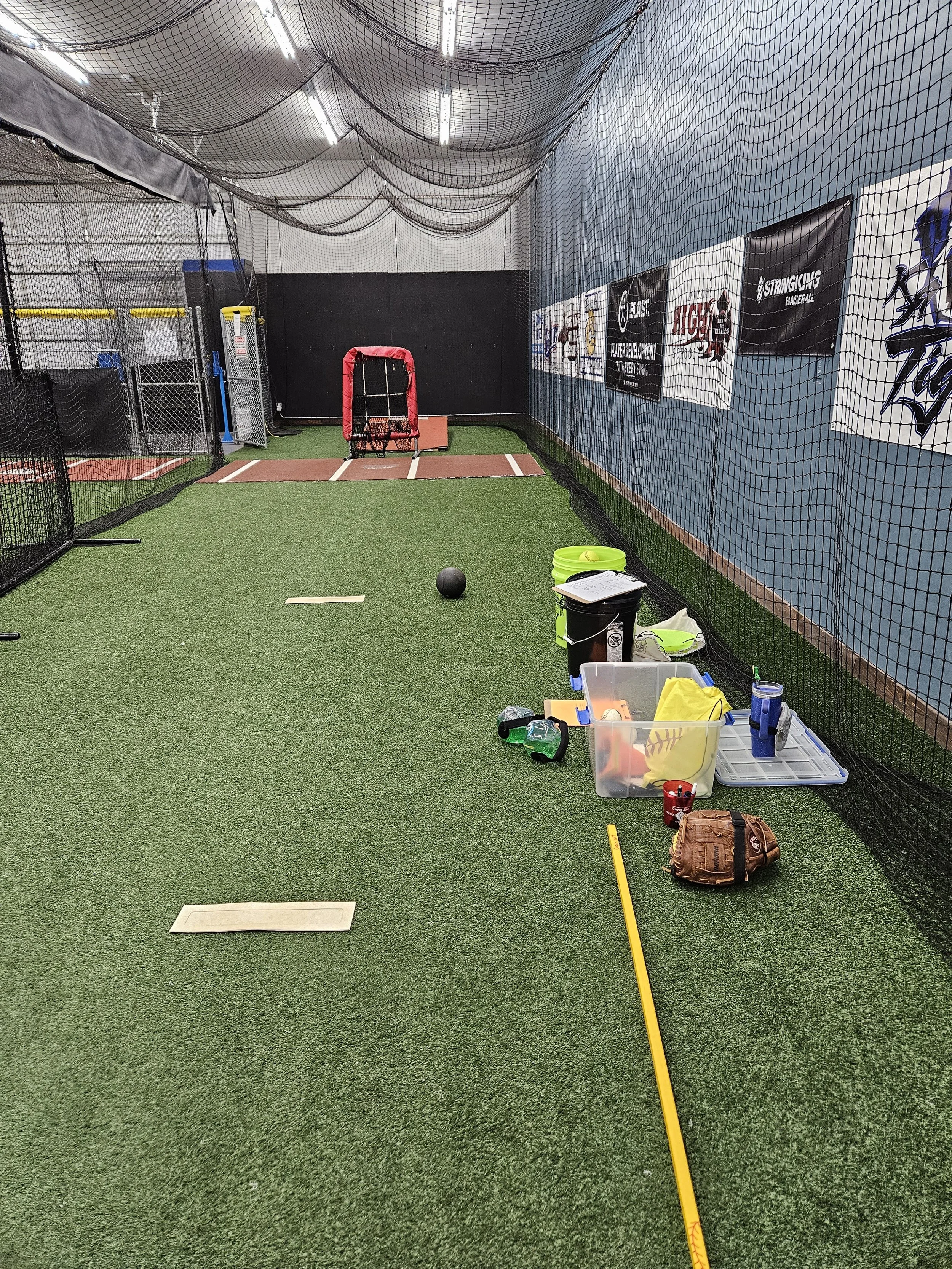You’re doing great!
Last week I had a break from pitching lessons to work with a 6 year old little girl. Since I only offer pitching lessons right now, it hadn’t occurred to me that it would be anything different but she wanted to work on hitting.
Que the quiet panic as I didn’t have any of my normal tools with me. A line from one of my old professors popped in my head that no one will know something is amiss unless you tell them.
Certainly a 6 year old wouldn’t notice! As she excitedly donned her adorable hot pink helmet and grabbed her bat with all the confidence in the world, I found myself instantly smiling and relishing in her joy of showing me what she could already do.
I grabbed a pool noodle to help as an aid and decided our imagination would have to lead the way. We worked with imaginary roly polys and gila monsters that day! But that’s not where the lesson is for me, although it was wonderful and creative.
At the end of the lesson, as I was tossing pitches for her to hit since I didn’t have a tee, I realized I’m a bit out of practice in this area. I said more than once “Oh, that’s terrible,” as if it required acknowledgement, as pitch after pitch missed her tiny strike zone. In the next moment, she looked at me beaming and said “No it isn’t, you’re doing great!” I was being expertly hyped up by a 6 year old, and she became my encourager! I melted a bit and honestly felt a little tear at the back of my eyes, but then it happened again. As another terrible pitch came in, I heard myself utter those same words, and she repeated hers a bit more emphatically. She saw me in a moment of insecurity and met me with pure, unfiltered encouragement. And it mattered. It made me feel safe, appreciated, and supported.
It was then that two lessons truly sank in and made me think about how to use these lessons practically in the future.
Lesson 1: We highlight our own mistakes more than anyone else would.
Takeaway:
People often mirror the energy we bring into a space. If we lead with self-criticism, they focus on our flaws. But if we lead with confidence (maybe a little humor where appropriate), they join us there too.
How you can use it:
With students/athletes: Model self-kindness. If you miss a pitch, smile and say, “Whoops! That one had a mind of its own!” instead of criticizing yourself. You’re showing them how to respond to their own mistakes.
On social media: Show up as you are without disclaimers. If there's a mess in the background or your hair's wild? Who cares! Your message is the point.
In life: Let yourself be in the moment rather than narrating your flaws. Most people aren’t noticing what you think they are.
Lesson 2: Encouragement, even from a child, matters deeply.
Takeaway:
When people feel safe and supported, they relax, have more fun, and learn better, including me.
How you can use it:
In your coaching: Be intentional about encouragement. Praise the effort as much as the result. Say things like, “You gave that swing your all!” or “I love how brave you were to try that!”
In self-talk: Treat yourself the way that 6 year old treated you. Replace “That was terrible” with “That wasn’t quite right, but I’m learning.”
In teaching others: Create spaces where making mistakes feels okay. Let your students/athletes know that struggling is part of the process, and model that through your own moments.


